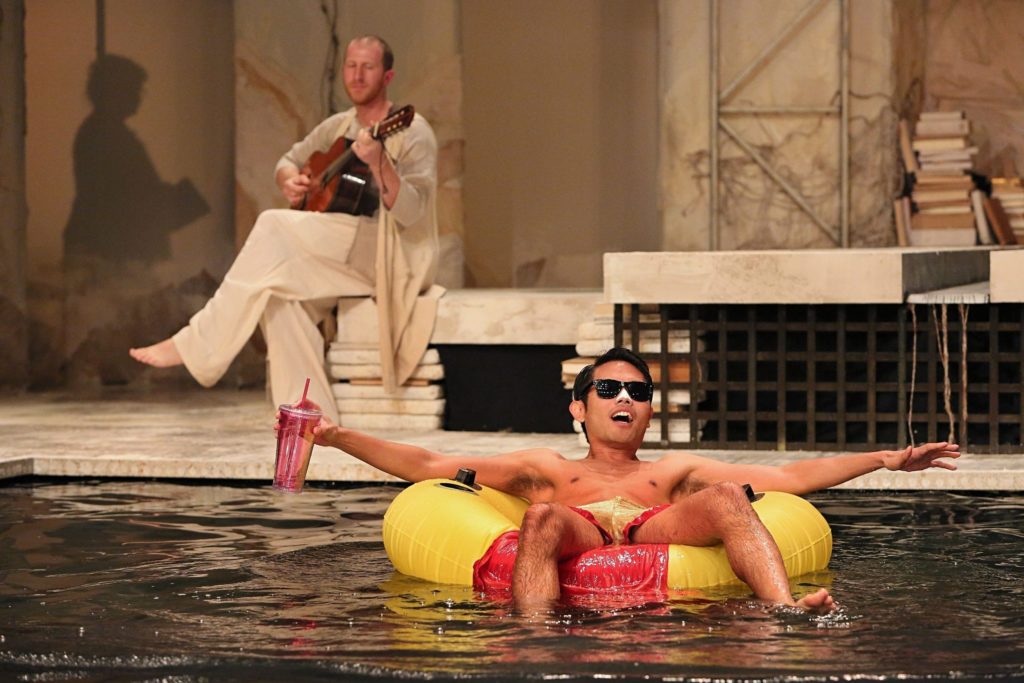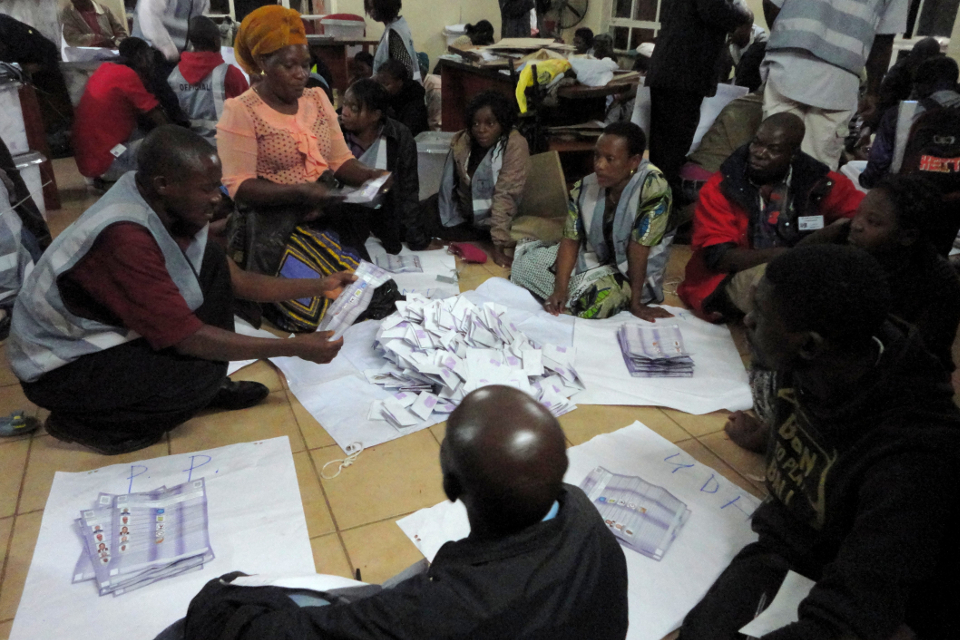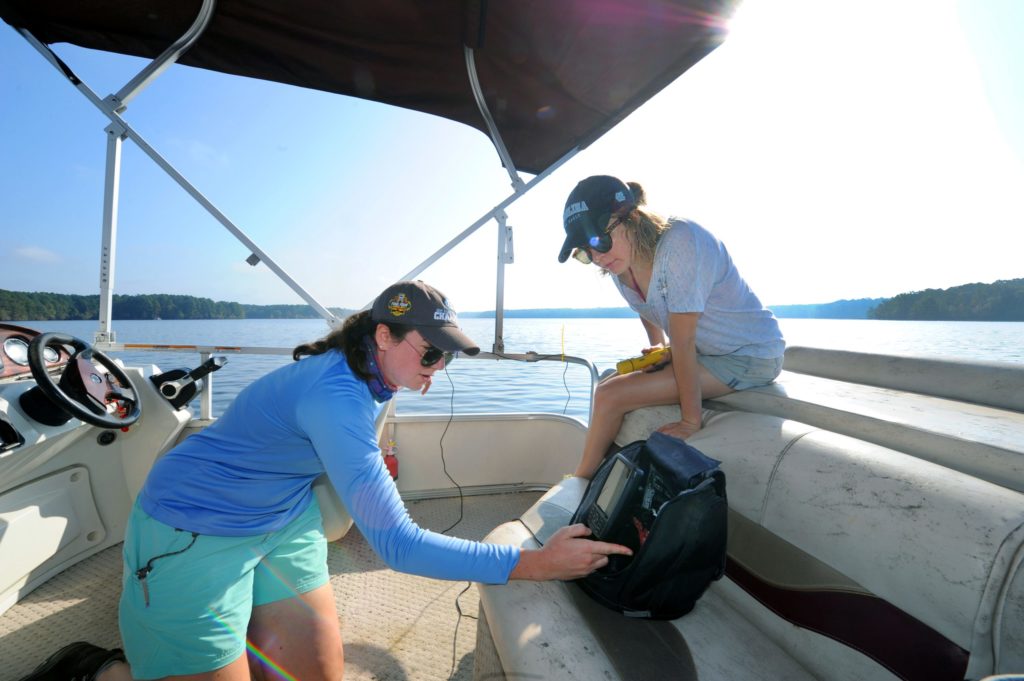By Kevin M. Guskiewicz, Dean, College of Arts & Sciences

People at UNC-Chapel Hill tend to know two things about me: They know me as the dean of the College of Arts & Sciences, and they know me as a concussion researcher.
I’m proud of the fact that I elected not to put my research on hold, as is custom, when I assumed the deanship in January 2016. I continue to spend a couple of mornings each week in my lab at the Matthew Gfeller Sport-Related Traumatic Brain Injury Research Center, I am a principal investigator on several grants and I still present at concussion conferences three to four times a year.
Being a scientist, I approach my research by asking timely and relevant research questions, forming hypotheses and testing those hypotheses. As dean, I’ve been able to adapt this approach to a wide range of issues. To make decisions about allocating resources, hiring faculty, building a new facility—even an initiative as sweeping as redesigning our general education curriculum—the approach is the same: I and my senior leadership team gather the information to answer the relevant questions. We test, then measure the potential impact—on our students, on our faculty, on the university as a whole.
This evidence-based approach gives me confidence that I am not making decisions in a vacuum. One of the best pieces of leadership advice I’ve received is to make informed, timely decisions. People appreciate knowing where you stand on an issue or a request, even if it’s not the answer they had hoped for. As dean, I learned quickly that I can’t make everyone happy, but if I can show that the decision was made with sound rationale and data, I can feel good knowing—and assure others—that it was not made impulsively.
Taking an evidence-based approach is me wearing my “scientist” hat. However, I believe being an effective leader pulls from the arts and humanities as well. It is through these disciplines that we understand what makes us human. Anyone who has heard me speak knows that I am a fierce proponent of an education that combines both the arts and the sciences. Our students need both as part of a well-rounded liberal arts education that is preparing them to be fully engaged citizens and the leaders of tomorrow. We need to tap the full breadth of the arts and the sciences to tackle the grand challenges facing our world.
The “arts” side of being a leader recognizes that there is more than data and hypotheses involved in running a large and complex enterprise like the College, with nearly 1,600 faculty and staff and a $300 million operating budget. One of my first acts as dean was to go on a “listening and learning tour” to better understand the workings of the 80 departments, curricula, centers, programs and institutes for which I was now responsible. Note that I said “listening and learning,” not “prescribing and promising.” Being an effective leader requires active listening and observing, to be empathetic, to hear the unspoken as well as the spoken.
Another aspect of the “arts” side of leadership is giving and receiving constructive feedback.
One of the most valuable lessons of participating in the IAH Academic Leadership Program (which I completed in 2008) is how to give effective feedback. The Center for Creative Leadership, part of this IAH fellowship, teaches SBI feedback – “Situation, Behavior and Impact.” I have found the technique helpful in providing both positive and negative feedback to students, colleagues and even my children. I also learned the value of asking for and receiving feedback from others. I think we can always work toward improvement, and this is as important for an organization as it is for an individual.
One of my priorities as dean has been to encourage more experiential learning opportunities for our students. “Experiential learning” means learning by doing. I guess being a leader is an experiential learning opportunity too. I have learned new things with each increase in responsibilities—first as a department chair (exercise and sport science) for eight years, then senior associate dean for natural sciences for two years, and now dean.
I will close with one last observation from my time in the IAH Academic Leadership Program. I learned that the most effective leaders emerge by putting themselves out there, and benefit from encouragement to lead. One of my important responsibilities is to spot emerging leadership talent among College faculty and staff and to help them develop that talent. I am grateful that Carolina, through the IAH program, invested in me as a leader a decade ago.
That’s not to imply that I am done with growing and developing as a leader. I expect it to be a lifelong process.
Post courtesy of the Institute for the Arts and Humanities’ blog




